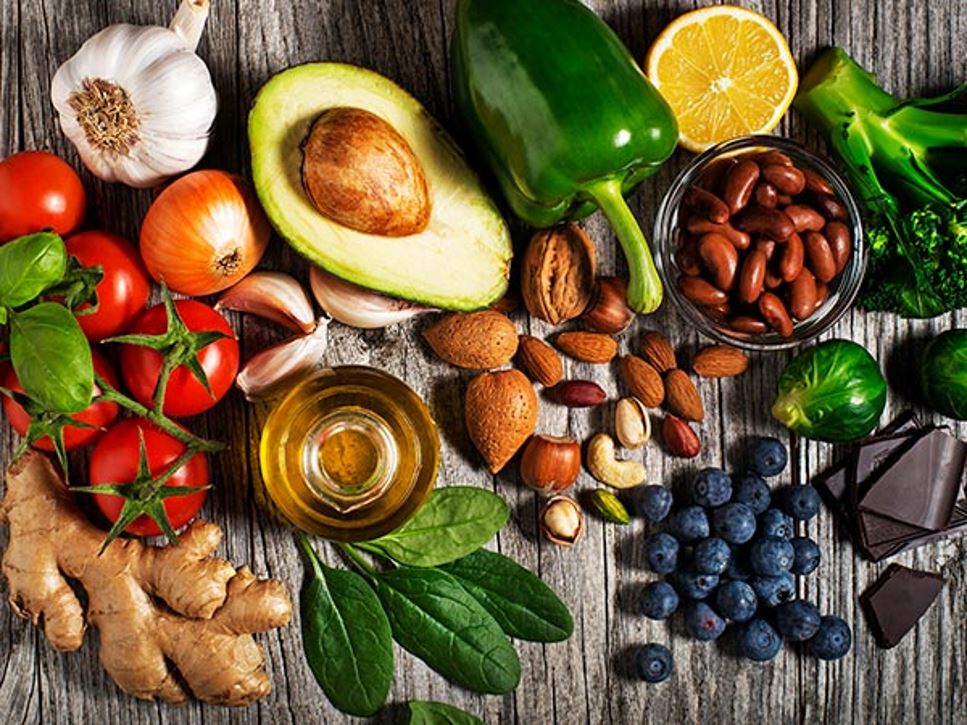The Role of Antioxidants in Health and Diet
Antioxidants have become a buzzword in the world of health and nutrition. With claims ranging from disease prevention to anti-aging benefits, it can be bewildering to understand what role they play in our health and diet. This post will delve into the science behind antioxidants, their types, sources, and how they fit into a healthy lifestyle.

What Are Antioxidants?
Antioxidants are molecules that inhibit the oxidation of other molecules. Oxidation is a chemical reaction that can produce free radicals, leading to chain reactions that may damage the cells of organisms. In simpler terms, antioxidants protect our body's cells from the damaging effects of oxidative stress.
Types of Antioxidants
Antioxidants are generally classified into two broad categories:
Endogenous Antioxidants
These are antioxidants produced naturally within the body. Key enzymes like superoxide dismutase, catalase, and glutathione peroxidase fall into this category. These enzymes work to neutralize free radicals generated during normal metabolic processes.
Exogenous Antioxidants
These antioxidants are obtained from the diet. They include vitamins C and E, beta-carotene, and various phytochemicals like flavonoids, polyphenols, and tannins found abundantly in plant-based foods.
How Do Antioxidants Work?
The primary function of antioxidants is to neutralize free radicals, unstable molecules that can cause cell damage. Free radicals are generated through various processes such as:
- Normal metabolic functions
- Exposure to pollutants
- Ultraviolet light
- Radiation
- Tobacco smoke
When free radicals overwhelm the body's ability to regulate them, oxidative stress occurs, which is linked to numerous diseases including cancer, cardiovascular diseases, and neurodegenerative disorders like Alzheimer's and Parkinson's disease.
Sources of Antioxidants
The human body cannot produce all the antioxidants it needs, making it essential to obtain them from dietary sources. Here are some food sources rich in antioxidants:
Fruits and Vegetables
- Berries: Blueberries, strawberries, raspberries, and blackberries.
- Citrus Fruits: Oranges, lemons, and grapefruits.
- Leafy Greens: Spinach, kale, and broccoli.
- Root Vegetables: Carrots, beets, and sweet potatoes.
Nuts and Seeds
- Almonds
- Walnuts
- Sunflower seeds
Beverages
- Green tea
- Black tea
- Red wine (in moderation)
The Role of Antioxidants in Disease Prevention
Epidemiological studies have shown that a diet high in antioxidants is associated with a reduced risk of chronic diseases. For instance:
Heart Disease
Antioxidants like flavonoids, commonly found in fruits and vegetables, have been shown to reduce the risk of heart disease by inhibiting LDL cholesterol oxidation and improving endothelial function.
Cancer
Some studies have suggested that antioxidants can lower the risk of certain cancers by protecting cells from oxidative damage and reducing inflammation.
Neurodegenerative Diseases
Antioxidants like vitamins C and E have been linked to a slower progression of Alzheimer's disease and other neurodegenerative conditions by reducing oxidative stress in the brain.
Controversies and Considerations
While antioxidants are undoubtedly beneficial, it is essential to approach their consumption mindfully. Several studies have indicated that high-dose antioxidant supplements may not provide the same benefits as antioxidant-rich foods and may even have adverse effects in some cases.
For example, a study found that high doses of beta-carotene supplements increased the risk of lung cancer in smokers. Therefore, obtaining antioxidants from a balanced diet rich in fruits, vegetables, nuts, and seeds is generally recommended over supplementation.
Conclusion
Antioxidants play a crucial role in protecting our bodies from the damaging effects of oxidative stress. Incorporating a variety of antioxidant-rich foods into your diet can contribute to better health and may help in preventing various chronic diseases. However, it is essential to obtain these nutrients from natural food sources rather than relying on supplements.
For more detailed information on antioxidants, consider visiting Healthline's comprehensive guide on antioxidants.
By understanding the role of antioxidants and incorporating a diverse range of foods into your diet, you can harness their full potential to support long-term health and well-being.
Feel free to share your thoughts, experiences, or questions in the comments below. Let's embark on a journey towards better health together!
